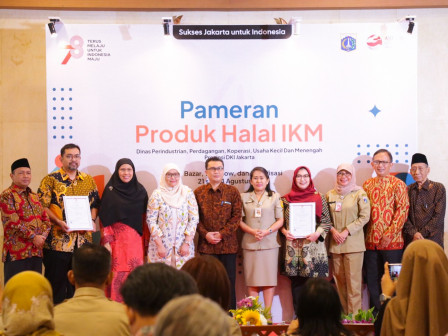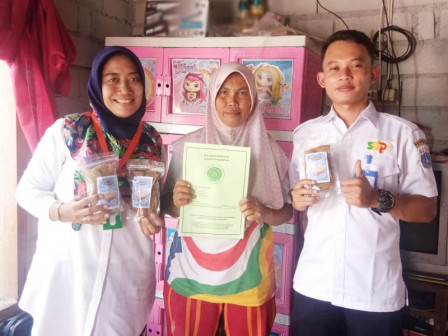West Jakarta Targets to Issue 400 Halal Certifications This Year
Reported by TP Moan Simanjuntak | Translated by Nugroho Adibrata
The West Jakarta Industry, Trade, Cooperatives, Small and Medium Enterprises Sub-agency (PPKUKM) targets to issue 400 halal certifications for SMEs this year.
Certificates are needed to increase consumer confidence and market share
West Jakarta PPKUKM Sub-agency Head, Iqbal Idham Ramid said the number of 400 halal certifications this year was less than last year which managed to issue 600 halal certifications as requested.
"Hence, SMEs registered in the Jakpreneur program must immediately process applications for halal certificates, especially for SMEs involved in processed food products," he expressed, Friday (2/16).
5,580 Jakpreneurs to Get Free Halal Certificates This YearAccording to him, The obligation to have a halal certificate, both regular and self-declared, for SMEs has been regulated in Presidential Decree No. 39/2021 on the Implementation of the Halal Product Guarantee Sector.
The difference between regular and self-declared halal certificates is that regular halal certificates are conducted through inspection or testing of product halalness by a halal inspection agency. The inspection was related to production kitchens, processed materials, and so on.
Meanwhile, a self-declared halal certificate means processed ingredients that have been certified halal, for instance, for dumpling traders, all the ingredients for making them such as fish, flour, soy sauce, and so on have a halal certificate.
"Especially traders in temporary locations (loksem) and coached locations (lokbin) must immediately have halal certificates. Certificates are needed to increase consumer confidence and market share," he stated.




